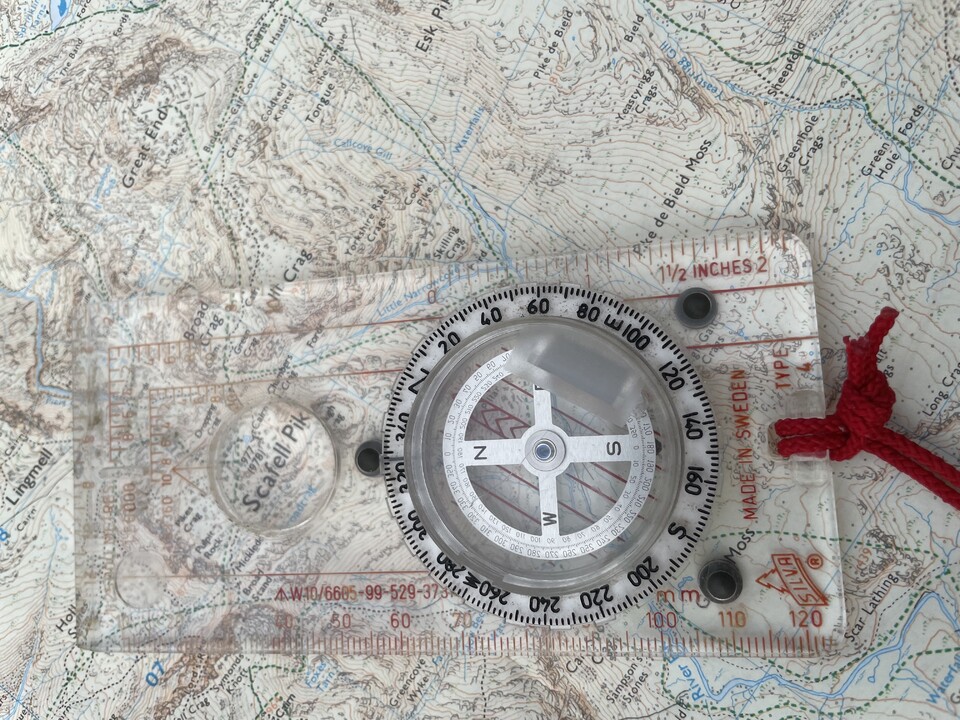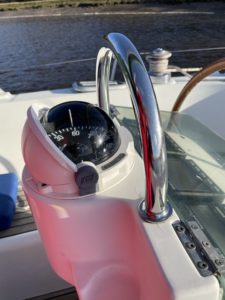Much organisational and business language comes directly from navigational terms and principles. How much of it is understood, is an interesting question! Regarding the compass, I would say, ‘not much’ at times, it seems.
So, the PURPOSE of what will be a series of 4 posts, (this introduction and three articles) is to begin to tell the often-untold story of the compass and how its Error and Bias, paradoxically, brings a new perspective to navigation and a new set of competencies.
There are potential lessons here for all of us involved with leading and managing change and delivering transformation.
These insights might even prove game changing!
Over the past few years there has been a proliferation of books, papers, and articles about navigating in these extraordinary times. The key question being addressed is ‘how do we find our way through the storms and fog of organisational life, often with limited charts or no charts at all?’ Many of these publications are helpful, as they play with insights and perspectives from different vantage points and disciplines.
And seeing from multiple perspectives that can inform choice, is one of the core principles of navigation.
It would also be fair to say that quite a few writers don’t appear to have a heritage in chart and compass work. Although this isn’t a problem it does mean that some of the richness of the story is lost. Because of this, many powerful principles and useful disciplines can be missed or remain unpractised.
At this time, as we face multiple and transformational ‘tsunamis’, we need to draw on as wide a source of insight and wisdom as we can find. This starts with understanding the meaning of navigational concepts and practices that are the source of much comment in the press and on social media. For many a compass is a simple and reliable tool, where the needle always points to North. It is much more than that…
You see the compass is indeed a unique, and wonderful instrument, but it also contains Error and Bias.
And there paradoxically… is the power.
As every navigator knows, the implications of error and bias must be accounted for, and adjustments made. What we at first see, must be challenged, and then calibrated. This is the real differentiator of this story because it is in the outworking of these adjustments, that progress strangely lies for us, in today’s turbulent conditions.
An example… and a principle that I will elaborate in later posts… The fact that leaders work from different internal compasses (and therefore different key decision markers) could cause difficulty when deciding which direction to take. So, if my ‘North’ is say about Justice, and yours is about Emotional Intelligence, we might experience a challenge when deciding how to react and manage a person who is not performing in the Change Team. Or it could be, if our relationship is robust, that both perspectives, influence a better quality of our combined decision. This is of course predicated on being explicit about what our ‘North’ means. In navigational terms this is called Variation. Does it matter? Well, that would be a good question to put to a Captain that has just crashed their ship onto a reef having failed to convert data from the chart into compass bearings… or the leader who has just overseen a failed programme of transformation that didn’t integrate the dimensions of People, Process, Digital and Economics.
I have lost count now of published articles that use ‘North’ as indicated by the needle of a compass and call it ‘True North’.
Magnetic North and True North are in entirely different locations.
Both are important but you must translate the language of one, into the other with accurate and up to date information, the right formula, and some math. It’s worth remembering that ‘True North’ is in essence a notional place created by mapping and geometric disciplines whereas Magnetic North, exists in the real world… although, it does shift around each year!
Another example…. How often does the ‘as is’ map of an organisation, differ from the real-life experience of employees and customers? We hear frequently the employee’s complaint that, what is being described, is a world away from their everyday experience. It is a notional place. When we talk to the leaders and put to them this concern, they often say that a ‘full consultation’ has taken place. And when we talk to the employees throughout the system, they say, ‘yes but the wrong questions were being asked and the wrong people were being canvassed’. So, the map eventually produced, representing ‘what is going on’ was in the eyes of many, limited in terms of accuracy and validity. This then translates into a poor ‘buy in’ to any change programme. So North, South, East and West, representing the organisational map constructed, didn’t match those of many peoples real experience. This would be like the magnetic north and the associated cardinal points of the compass.
Recently a large and failing enterprise in the social sector, as part of its consultation only asked the leaders ‘how it was going’! Direction was set based on this limited information. And they wonder why they continue to struggle!
Over the next 4 weeks I will publish an article each week that begins to tell the story of how we might better use the various ‘compasses’ that exist throughout an organisation.
I have sectioned it up, as this tale doesn’t lend itself to a ‘sound bite presentation’ of a few sentences… if it is to have meaning. I appreciate that longer papers are not everyone’s preference and this one doesn’t lend itself to a casual flick through!
However, there is a story here that needs to be told. Although I will present content that I hope will stir your curiosity, I also want to make each article accessible and focussed enough to keep attention and interest.
So, if you are a Leader, or Manager of change, a Facilitator, a Coach, or just interested in a different view, do look out for my series of articles which will be published, starting next week:
- The Compass in context and its role in navigation
- Dealing with Variation and the practical application
- Dealing with Deviation and practical application.
In the meantime, let me leave you with a question … what would be the compass that guides your decisions?



